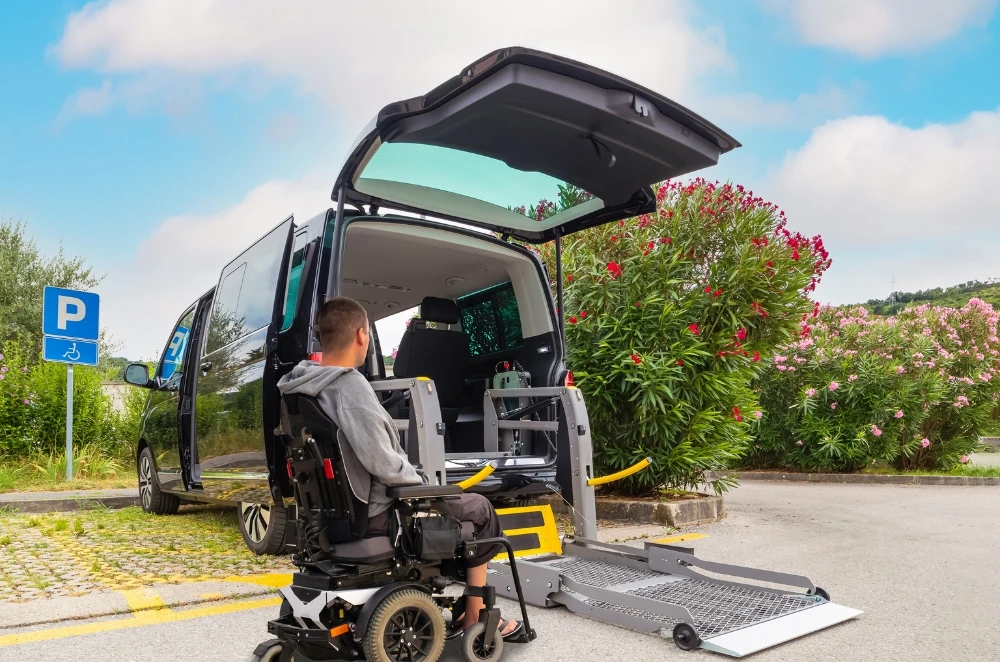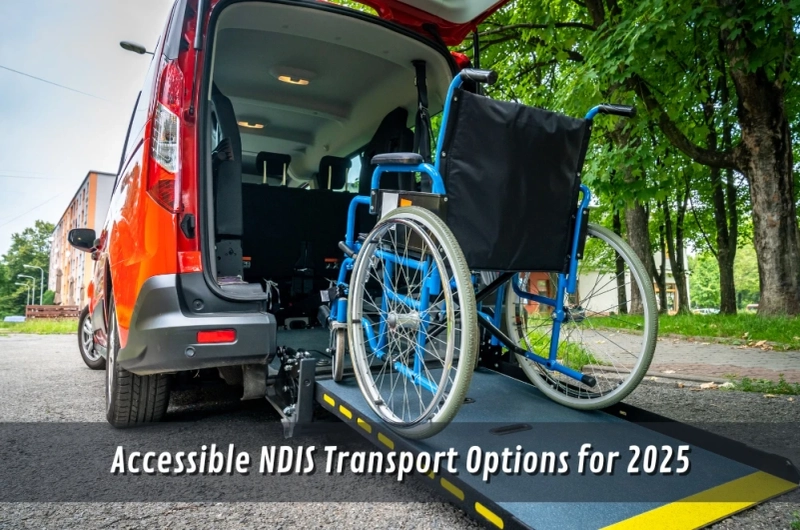Getting from A to B shouldn't feel like a maze
When my cousin Sam first got his NDIS plan approved, we assumed transport would be the easy bit. But figuring out how to actually use the transport funding — booking rides, understanding eligibility, finding reliable providers — that took a lot more effort than we expected.
We eventually found a few NDIS transport providers Sydney locals recommended through their support networks, and it changed everything. Appointments became easier to manage. Sam could visit his mates on weekends. He even started going to community events again.
So if you're navigating NDIS transport in Sydney in 2025, here's a real-world look at your options — and how to make the system work for you.
What is NDIS transport, and who can access it?
NDIS transport support helps people with disabilities get where they need to go when public transport isn't practical or safe due to disability.
It can be used for things like:
- Medical or allied health appointments
- Day programs and support groups
- Educational commitments
- Work or job-seeking
- Social and community participation
NDIS transport is generally available to participants who can't travel independently or access transport without formal support.
Three main types of transport support
1. Direct transport funding in your plan
This is allocated to participants with ongoing travel needs for work, education, or regular community access. Funds are usually provided as a monthly allowance, and you manage how it’s spent.
2. Transport via Core Supports
If your support worker drives you as part of a scheduled support session, that trip can be claimed from your core budget under “Assistance with Social and Community Participation.”
3. Specialist transport providers
These are companies or services offering vehicles and drivers trained to support complex needs. Vehicles may include wheelchair lifts, hoists, and assistance for people with low mobility or cognitive impairments.
A real-world example
Imagine you’ve got a podiatry appointment at 10:00 AM in Parramatta, but you can’t use trains or buses due to mobility challenges.
You’d call or book your transport provider the day before. A support worker trained in safe transfers arrives with an accessible vehicle. They get you to the clinic, and either wait or return later, depending on the arrangement.
They log the trip, and the invoice is sent to your plan manager, or deducted automatically if you're self-managed.
That level of consistency means fewer missed appointments and a better routine overall.
How to find a transport provider in Sydney
Sydney offers a wide range of NDIS transport options, including:
- Registered NDIS transport businesses
- Support services that offer transport as part of broader support
- Community transport programs in regional or outer suburbs
- Hybrid models combining personal support and vehicle services
When comparing providers, think about:
- Vehicle types and accessibility features
- Worker training and communication skills
- Suburb coverage and availability
- On-time record and client reviews
- Booking flexibility
Understanding the funding side
One of the most common pain points for families and carers is understanding what’s actually included in the plan.
That’s where a basic understanding of NDIS transport funding rules really helps.
You should check:
- If you have a set transport allowance
- What level of support applies (Level 1–3)
- Whether your transport needs fall under core supports
- How your plan is managed (self, plan, or agency)
Knowing this upfront can save confusion when choosing a provider.
Common issues and practical solutions
Here are some everyday problems participants face, and ways to navigate them:
Missed pick-ups
Ask providers about confirmation messages, ETAs, or follow-up procedures. Look for clear communication systems.
Limited vehicle suitability
Always ask in advance about wheelchair access, lift types, or restraint systems. Photos and specs help.
Poor scheduling flexibility
Some services need 24–48 hours’ notice. If that doesn't suit you, find providers with shorter lead times or emergency transport options.
Unexpected costs
Review your service agreement carefully and ask for itemised quotes. Understand if cancellation fees or wait times are charged.
Why good transport is life-changing
The right NDIS transport isn’t just about moving from one place to another. It’s about reconnecting with your community.
Sam went from cancelling medical appointments out of frustration to attending every one. He started going to a weekly art group, something he hadn’t done in years. He felt more independent, and his confidence came back.
Choosing the right transport service allowed him to take part in his own life again.
What does it usually cost?
Most providers charge per kilometre, with optional wait time or admin fees depending on the service.
Here’s what to expect:
- $1.00 to $2.00 per kilometre
- Additional charges for complex needs or support staff
- Weekend or evening surcharges with some providers
- Invoicing options for plan- and self-managed clients
NDIS pricing caps apply to registered providers, but self-managed participants can negotiate reasonable rates.
Getting the most out of your support
- Confirm bookings early, especially for peak hours
- Use the same provider consistently to improve service reliability
- Check what’s included in your service agreement
- Keep a transport log if managing funds yourself
- Review invoices regularly to ensure you're being billed correctly
Choosing a provider: what to look for
When shortlisting providers, ask:
- Are they NDIS-registered or plan-managed compatible?
- Do they service your exact suburb?
- What types of vehicles are available?
- Do drivers or support workers have appropriate qualifications?
- How do they manage delays or cancellations?
- Can they handle last-minute changes?
If you’re unsure, your local support coordinator or plan manager can often recommend reputable options.
Taking it further: transport beyond the basics
Once you’ve got the essentials down, transport can open doors to more freedom, like community outings, classes, or even short trips away.
To do this well, it helps to follow national disability transport service best practices for safety, planning, and quality service.

Final thoughts
NDIS transport services aren’t just another line item in your plan. They’re about enabling participation, connection, and daily choice.
If you’re looking for NDIS transport providers Sydney residents trust, look for more than just a driver. Choose a provider that understands your needs and respects your independence.
Because real support isn’t just about getting you there — it’s about giving you back the freedom to choose where you want to go next.



